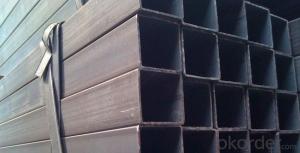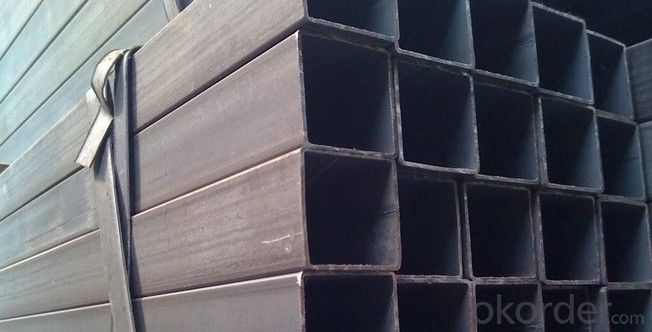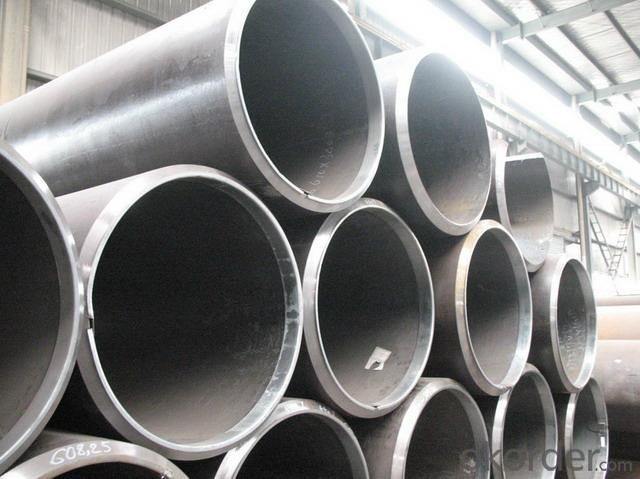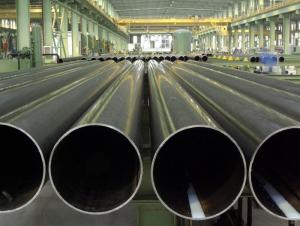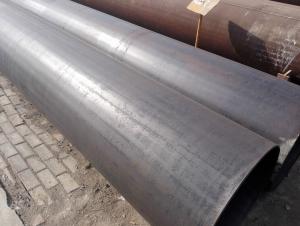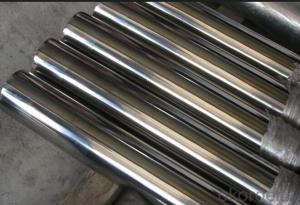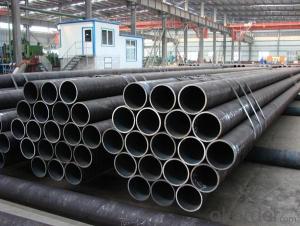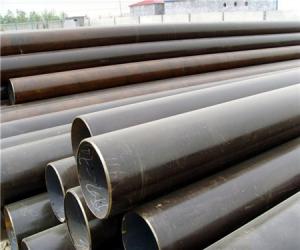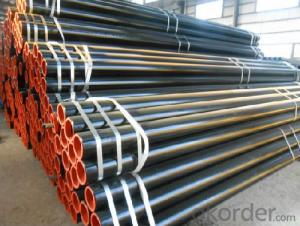Good quality Welded Pipe/Tube Welded Pipe manufacturer
- Loading Port:
- Tianjin
- Payment Terms:
- TT or LC
- Min Order Qty:
- 20 m.t.
- Supply Capability:
- 12000 m.t./month
OKorder Service Pledge
OKorder Financial Service
You Might Also Like
1、Structure of Seamless Pipe ASTM A106/53:
Seamless pipe is formed by drawing a solid billet over a piercing rod to create the hollow shell. As the manufacturing process does not include any welding, seamless pipes are perceived to be stronger and more reliable. Historically seamless pipe was regarded as withstanding pressure better than other types, and was often more easily available than welded pipe.
2、Main Features of the Seamless Pipe ASTM A106/53:
• High manufacturing accuracy
• High strength
• Small inertia resistance
• Strong heat dissipation ability
• Good visual effect
• Reasonable price
Standard: GB5310: Seamless Steel Tubes And Pipes for High Pressure Boiler
● Application: For manufacture heating-pipelines, containers, coal-saving devices, super heaters and reheaters
of high pressure boilers(P>9.8Mpa,450℃<T<650℃)
● Steel Grade: 20G、20MnG、15MnG、15MnG、12Cr2MnG、12Cr1MoVG (etc),Other grade can also be provided
after consulting with customers.
3、Seamless Pipe ASTM A106/53 Specification:
Standard | GB, DIN, ASTM ASTM A106-2006, ASTM A53-2007 |
Grade | 10#-45#, 16Mn 10#, 20#, 45#, 16Mn |
Thickness | 8 - 33 mm |
Section Shape | Round |
Outer Diameter | 133 - 219 mm |
Place of Origin | Shandong, China (Mainland) |
Secondary Or Not | Non-secondary |
Application | Hydraulic Pipe |
Technique | Cold Drawn |
Certification | API |
Surface Treatment | factory state or painted black |
Special Pipe | API Pipe |
Alloy Or Not | Non-alloy |
Length | 5-12M |
Outer Diameter | 21.3-610mm |
Grade | 20#, 45#, Q345, API J55, API K55, API L80, API N80, API P110, A53B |
Standard | ASME, ASTM |
4、Packaging & Delivery
Packaging Details: | seaworthy package,bundles wrapped with strong steel strip |
Delivery Detail: | 15-30days after received 30%TT |
5、FAQ of Seamless Pipe ASTM A106/53:
①How is the quality of your products?
Our products are manufactured strictly according to national and internaional standard, and we take a test
on every pipe before delivered out. If you want see our quality certifications and all kinds of testing report, please just ask us for it.
Guaranteed: If products’ quality don’t accord to discription as we give or the promise before you place order, we promise 100% refund.
②How about price?
Yes, we are factory and be able to give you lowest price below market one, and we have a policy that “ for saving time and absolutely honest business attitude, we quote as lowest as possible for any customer, and discount can be given according to quantity”,if you like bargain and factory price is not low enough as you think, just don’t waste your time.Please trust the quotation we would give you, it is professional one.
③Why should you chose us?
Chose happens because of quality, then price, We can give you both.Additionally, we can also offer professional products inquiry, products knowledge train(for agents), smooth goods delivery, exellent customer solution proposals.Our service formula: good quality+good price+good service=customer’s trust
SGS test is available, customer inspection before shipping is welcome, third party inspection is no problem.
6、Seamless Pipe ASTM A106/53 Images:
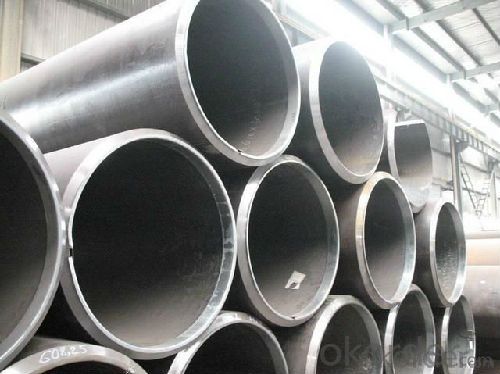
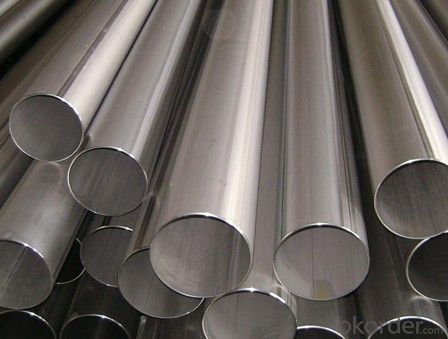
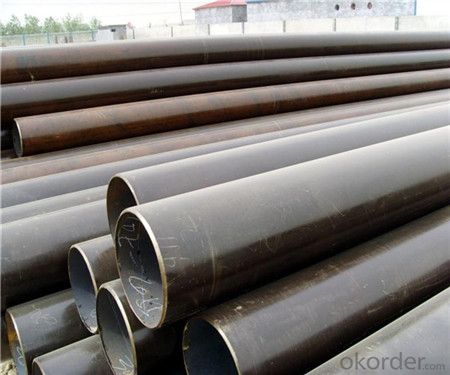
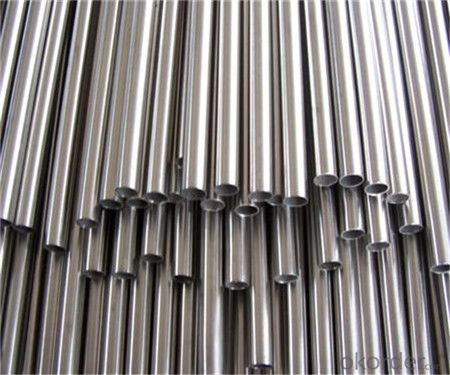
- Q: How are steel pipes protected against rusting?
- Steel pipes are protected against rusting through a process called corrosion protection. There are several methods employed to prevent rust formation on steel pipes, including: 1. Coatings: One common method is applying various coatings to the surface of the steel pipes. These coatings act as a barrier, preventing oxygen and moisture from reaching the metal surface and initiating the rusting process. Coating options include epoxy, polyethylene, zinc, or even a combination of these materials. 2. Galvanization: Galvanizing steel pipes involves immersing them in a bath of molten zinc. This process creates a protective layer of zinc on the surface of the pipes which acts as a sacrificial barrier. If any small areas of the pipe surface are exposed, the zinc coating will corrode instead of the steel, providing ongoing protection against rust. 3. Cathodic Protection: This method utilizes an electrical current to protect the steel pipes. By connecting the pipes to a sacrificial anode, usually made of zinc or magnesium, the anode will corrode instead of the steel pipes when exposed to moisture and oxygen. This process is commonly used in underground or underwater applications. 4. VCI (Vapor Corrosion Inhibitor) Technology: VCI technology involves the use of chemical compounds that release a vapor that protects the steel pipes from rusting. These compounds form a thin layer on the surface of the pipes, inhibiting the corrosion process by neutralizing oxygen and moisture. 5. Regular Maintenance: In addition to the above methods, regular inspection and maintenance are crucial to prevent rust formation on steel pipes. This includes cleaning the pipes, removing any accumulated debris or corrosive substances, and repairing any damaged coatings or protective layers. Overall, these methods of corrosion protection effectively safeguard steel pipes from rusting, ensuring their longevity and durability in various industrial, commercial, and residential applications.
- Q: Can steel pipes be used for underground fire sprinkler systems?
- Yes, steel pipes can be used for underground fire sprinkler systems. Steel pipes are commonly used in fire sprinkler systems due to their strength, durability, and resistance to heat and corrosion. They are suitable for underground installations as they provide reliable and long-lasting performance. Additionally, steel pipes are available in various sizes and configurations, allowing for flexibility in designing and installing underground fire sprinkler systems. However, it is important to ensure that the steel pipes are properly coated or protected to prevent corrosion and ensure their effectiveness in an underground environment. Regular inspections and maintenance are also necessary to detect any potential issues or damages to the steel pipes in order to maintain the safety and functionality of the fire sprinkler system.
- Q: What is the single length of galvanized steel pipe?
- The single length of galvanized pipe is 6 meters. The length of galvanized seamless steel tube is uncertain, depending on the length of seamless steel tube.
- Q: What are the different methods of cleaning steel pipes?
- There are several methods for cleaning steel pipes, including mechanical cleaning, chemical cleaning, and high-pressure water jetting.
- Q: What is the difference between steel pipes and HDPE pipes?
- Steel pipes and HDPE pipes are both commonly used for various applications, but they differ in their composition and characteristics. Steel pipes are made from a combination of iron and carbon, offering high strength, durability, and resistance to extreme temperatures and pressure. They are commonly used in industries like oil and gas, construction, and plumbing. On the other hand, HDPE pipes are made from high-density polyethylene, a thermoplastic material known for its flexibility, corrosion resistance, and lightweight nature. HDPE pipes are often used in water supply and drainage systems, as well as for underground and aboveground applications. Ultimately, the choice between steel pipes and HDPE pipes depends on the specific requirements of the project, including factors such as cost, application, and environmental conditions.
- Q: Are steel pipes suitable for fire protection systems?
- Yes, steel pipes are suitable for fire protection systems. They are widely used due to their durability, strength, and resistance to high temperatures. Steel pipes can efficiently transport water or fire suppressants to extinguish fires effectively, making them a reliable choice for fire protection installations in various buildings and industrial settings.
- Q: Can steel pipes be used for conveying gases?
- Yes, steel pipes can be used for conveying gases. Steel pipes are widely used in industrial applications for transporting various gases, including natural gas, propane, and other types of gases. Steel pipes have excellent strength and durability, making them suitable for carrying gases at high pressures and temperatures. Additionally, steel pipes have a high resistance to corrosion, which is crucial when dealing with gases that can be corrosive.
- Q: What are the different types of steel pipe supports for overhead piping?
- There are several types of steel pipe supports for overhead piping, including pipe hangers, pipe clamps, beam clamps, and pipe rollers. Pipe hangers are used to support vertical pipes, while pipe clamps provide support for horizontal pipes. Beam clamps are designed to attach to structural beams and provide support for the pipe. Pipe rollers are used to allow the pipe to move freely, accommodating expansion and contraction.
- Q: How seamless steel tube is formed?
- Hot drawing or cold drawing. The so-called cold is the billet from the thick wall tube is not heated, oil lubrication, with a steel sleeve inside, gradually elongated. Hot drawing is to make the billet tube red, do such work, generally thick wall applicable.
- Q: Can steel pipes be used for structural purposes?
- Yes, steel pipes can be used for structural purposes. Due to their high strength, durability, and resistance to various environmental factors, steel pipes are commonly used in construction for applications such as supporting structures, frames, and columns. They offer superior load-bearing capacity and are especially suitable for use in large-scale infrastructure projects.
Send your message to us
Good quality Welded Pipe/Tube Welded Pipe manufacturer
- Loading Port:
- Tianjin
- Payment Terms:
- TT or LC
- Min Order Qty:
- 20 m.t.
- Supply Capability:
- 12000 m.t./month
OKorder Service Pledge
OKorder Financial Service
Similar products
Hot products
Hot Searches
Related keywords
